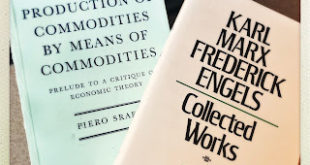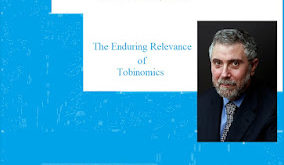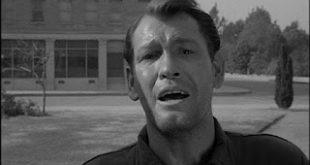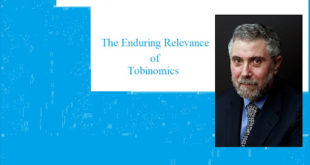A few years back in Colombia, we discussed with a group of students about a possible reading group of Sraffa's Production of Commodities by Means of Commodities (PCMC). After the pandemic I thought that the experience with Zoom perhaps created the conditions for that. But I also have a concern expressed here several times (see here and here) about the lack of understanding of the theory of value and distribution and its importance for policy analysis, and not just among mainstream...
Read More »The economic and social consequences of the war on Europe and Italy
By Sergio CesarattoWith a certain pride I remember having already mentioned for some years, within the framework of my economic courses, political realism in international relations and International Political Economy. I did so in academic contexts in which an uncritical Europeanism based on liberal thinking prevailed (and prevails) according to which the world is divided into good and bad. The book, which I suggested for reading to my students (Sorensen 2005), published in Italian by...
Read More »What is heterodox economics? Some clarifications
Long ago I wrote on the meaning of heterodox economics. I suggested that it should be defined in its own terms, not as a reaction to the mainstream or orthodox approach, and as a unified set of propositions.[1] In other words, heterodox economics would be a set of principles that would be backed by a certain community. Of course, the sociology of that community would lead to some degree of debate and dissent within heterodoxy, as it is in fact the case within the mainstream. There is, one...
Read More »The Enduring Relevance of Tobinomics
[embedded content]Krugman's lecture which will be published in the Review of Keynesian Economics (ROKE).
Read More »Paul Krugman live here
Click here.
Read More »A new Pink Tide in Latin America?
[embedded content]Episode 52 of the Podcast Missão Desenvolvimento with Paulo Gala and Eduardo Crespo discussing the possible new Pink Tide in Latin America (in Portuguese).
Read More »Blog Moving to Substack (and first post)
"Where is Everybody?"The blog will continue here for announcements, messages and links to more substantive pieces. But those will be posted from now on at Substack. I might also post videos in another platform. But more on that later. Link for first post (on whether the US is a failed State, something that got some traction during the pandemic, particularly in the aftermath of the January 6 riot) here.
Read More »Registration for the Godley-Tobin Lecture
Registration for the 5th Godley-Tobin Memorial Lecture, for those that cannot be at Bucknell University for the event, is now open here.
Read More »Some thoughts on inflation and what not to do about it
I have written extensively over the years on inflation and some of that is here in the blog (see this or this, or this more recently on Volcker the inflation dragon slayer, if you believe in fairy tales; there's way more if you search the blog; I also highly recommend this paper by Perry and Cline in ROKE, which is open, btw). My more recent piece on inflation came out recently in Catalyst, just before the war in Ukraine (on the war see this by Palley, and this old piece by Gary Leupp after...
Read More »Beyond Vulgar Economics: Conceição Tavares and Heteredox Economics
My paper (in Spanish) for a book on social thinkers in Latin America edited by Marcelo Rougier and Juan Odisio, and that I presented in a few venues since 2020, is now revised and done. The book includes chapters on Raúl Prebisch, Aníbal Pinto, Víctor Urquidi, Celso Furtado, Juan Noyola Vázquez, Helio Jaguaribe, Aldo Ferrer, and Osvaldo Sunkel, besides mine on Maria da Conceição Tavares. A version available here.
Read More » Naked Keynesianism
Naked Keynesianism




